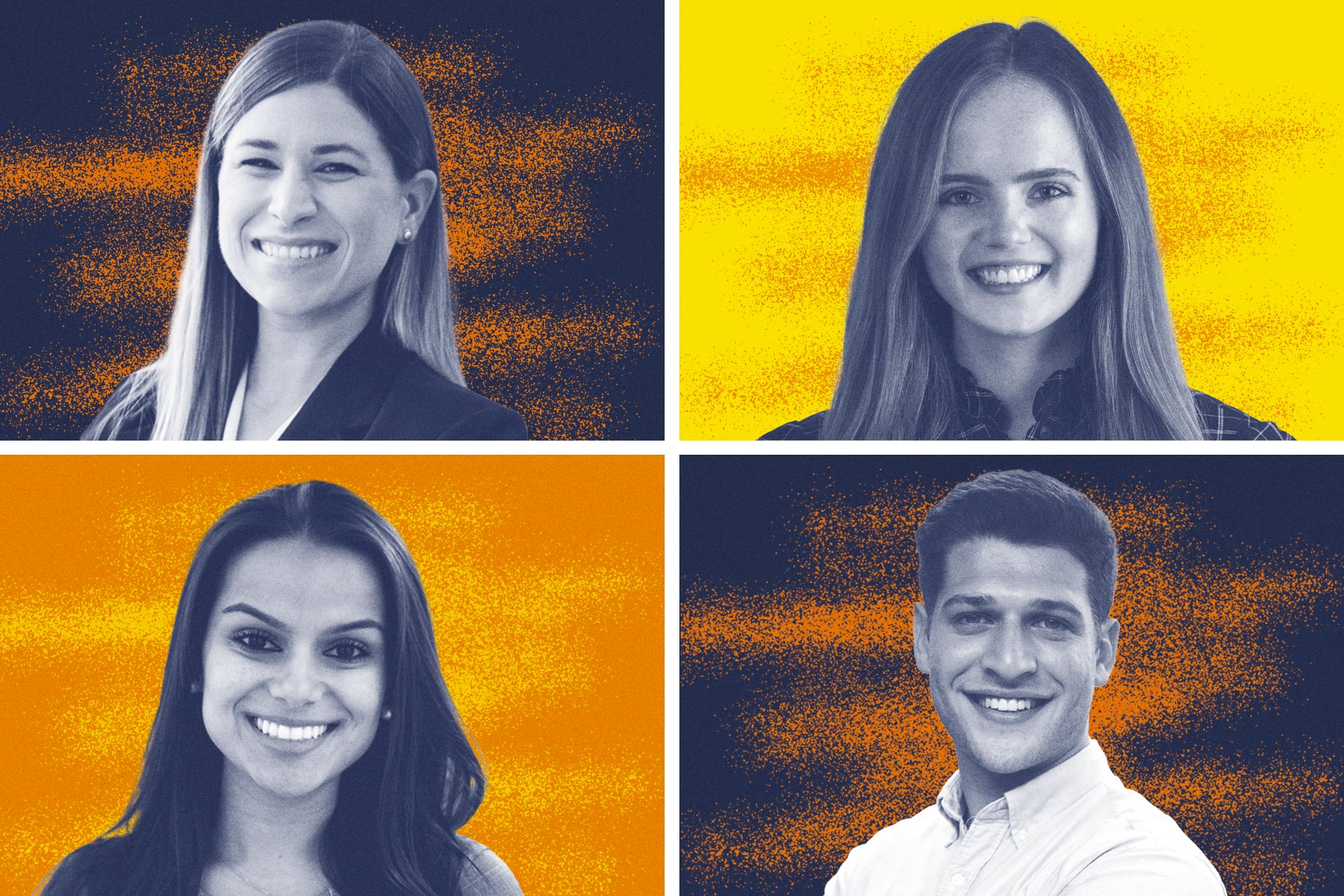Similar to star financiers like Mark Cuban, Lori Greiner, Daymond John and Barbara Corcoran on the hit television show “Shark Tank,” University of Virginia students listen intently as the CEOs of startup companies explain why they believe their ventures are worthy of investment.
At the end of the presentation, the students ask the CEOs questions. Then it’s deliberation time.
Working as a team, the students complete reports that include sections on product evaluation, market size and competitive landscape, as well as a financial analysis, including valuation.
From there, the students have additional meetings with the CEOs, who answer follow-up questions. The experience then finishes with the students delivering their reports to the CAV Angels Executive Committee.
“It is the ultimate in cross-Grounds experiential learning,” McIntire School of Commerce alumnus Richard Diemer said. “It’s a special feeling to see Darden students mentor undergraduates as if they were working for the same venture capital firm.”
The program, CAVenture, is an offering of CAV Angels, a nonprofit club comprising UVA alumni, faculty, parents and students, plus friends of the University, that was started by Diemer, Dick Crawford and Jim Cheng in 2016. It invests exclusively in UVA-related companies and founders.
Now in its third year, CAVenture is a cross-Grounds, apprentice-style program that is open to any CAV Angels student members – who take part in it on their own time. Companies looking for funding agree to undergo a due-diligence process conducted principally by the students, who are guided by the CAV Angels board, executive committee or other volunteer members.
“I think one of the special parts of this experience for the students is that they are given leadership over an area of the project that interests them personally,” CAVenture board member Aaron Fernstrom said. “So many of the students that find CAVenture have boundless intellectual curiosity, which in many ways is what makes a great investor and entrepreneur – and student. We want to feed that as much as we can.”
Students on the CAVenture teams range from undergraduates living on Grounds to graduate students in Darden’s Executive MBA program living in Washington, D.C.
UVA Today caught up with Darden School of Business students Adriana Gadala-Maria and Rachel Edwards; Sambriddi Pandey, a fourth-year student in the McIntire School of Commerce; and Alejandro Waquin, a fourth-year student in the College of Arts & Sciences, to hear about their experiences.
Q. How did you first learn of the CAVenture program and what made you want to be a part of it?
AGM: I knew I wanted to pivot my career into venture capital before coming to Darden. So, once I committed to UVA’s MBA program, I reached out to current students with similar career goals, asking them what resources were available to learn about venture capital work. I heard about CAV Angels through those conversations and found out that CAVenture offers UVA students the opportunity to get firsthand venture deal experience. There are few opportunities to work on venture deals – and the opportunities that exist are extremely competitive – so I jumped at the chance.
AW: During my second year at UVA, I joined an impact investing club called Profit With Purpose. I was really interested in learning about companies whose goals were not only to reach high financial returns, but who also wanted to create a better world. In PWP, we partnered up with small companies and worked with their CEOs to find the strengths and weaknesses of their business models.
I really enjoyed being a part of Profit With Purpose and was doing very well in the club. The president of PWP reached out one day to tell me about an opportunity where I could take what I had learned with PWP and apply it to real-world scenarios. This was a chance to learn how to bring in real money to startups, while also working on my due-diligence skills with MBA students. I was excited by the idea of this club, so I decided to join CAV Angels.
SP: I learned about CAVenture while interning at CAV Angels. I had experienced working on due diligence for CAV Angels in the past, but found this program incredibly different and exciting as it involved working alongside MBA students rather than working on a diligence report alone. As an undergrad, I thought this would be an excellent way to learn from the grad students at Darden, as we don’t have that many opportunities to work alongside each other.
RE: I learned of CAV Angels during the fall of my first year [at Darden] and got involved in January of 2021, so I have been with CAVenture for a little over a year now. It has been great to get exposure to startups and learn about the due-diligence process involved in evaluating early stage companies. I am hoping to ultimately transition from the startup/entrepreneurship world to a career in venture capital, so the experience with CAV has been incredibly valuable.
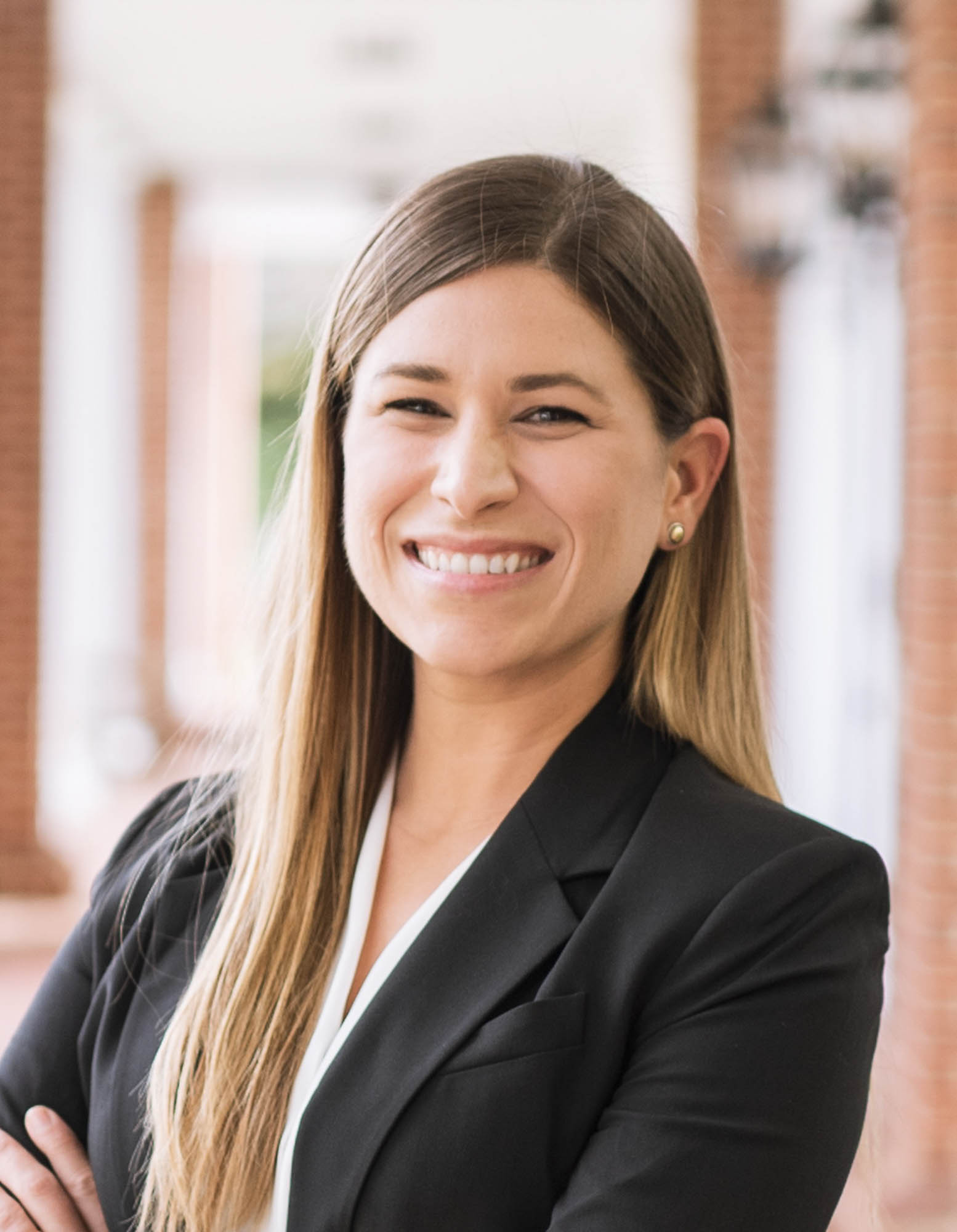
Darden School of Business student Adriana Gadala-Maria hopes to work in venture capitalism after she graduates. (Contributed photo)
Q. Can you take us through a due-diligence process you did with a specific company? What were the different stages? How long did it all take?
AGM: In fall 2020, a group of UVA students and I performed due diligence on DataClassroom, a prospective investment deal for CAV Angels at the time. For those that are new to due diligence in venture capital, it is research on a prospective company for investment. This includes analyzing a company’s team, product, business model, addressable market, go-to-market strategy and customer segments.
To best understand DataClassroom, our team had multiple conversations with the startup founders and team, researched the addressable market, interviewed prospective customers, and spoke with experts in the industry. This process took several weeks, and after finishing this work we presented our research and recommendation to the CAV executive committee, who ultimately decided to make an investment in the startup.
AW: I performed the due-diligence process upon a beauty company called Brandefy. The process consisted of asking the founder, Megan, many strategic and carefully thought-out questions in order to better understand the components of the business so we could then determine if they were the right company to fund. We specifically looked at Brandefy’s industry, market, management team, competitors, customers, business models, financials and other important aspects. We had to then take the information we had gathered and turn it into a recommendation paper for the investment board.
We completed the recommendation by splitting up the work between our group of five. I was in charge of looking at the management team to determine if they were missing any talent and if they had what it took to take the company to the next level. To do this, I set up a call with Meg and looked at the résumés of all of her management employees, and also looked at their LinkedIn profiles. In doing so, I was able to find that not only is Megan extremely talented and intelligent, but her team was also very capable and determined. My colleagues were also in agreement with me based on their research, so we recommended the executive committee to invest in the company.
Q. What are some of the main things or skills you’ve picked up as a result of this experience that you think will help you in the future?
AGM: Prior to CAVenture, I had no experience in the venture space and didn’t know how to approach diligencing a venture deal. To help guide our research, Rich and the executive team met with our team about once a week, and I think this general guidance on how to think about startups helped me most.
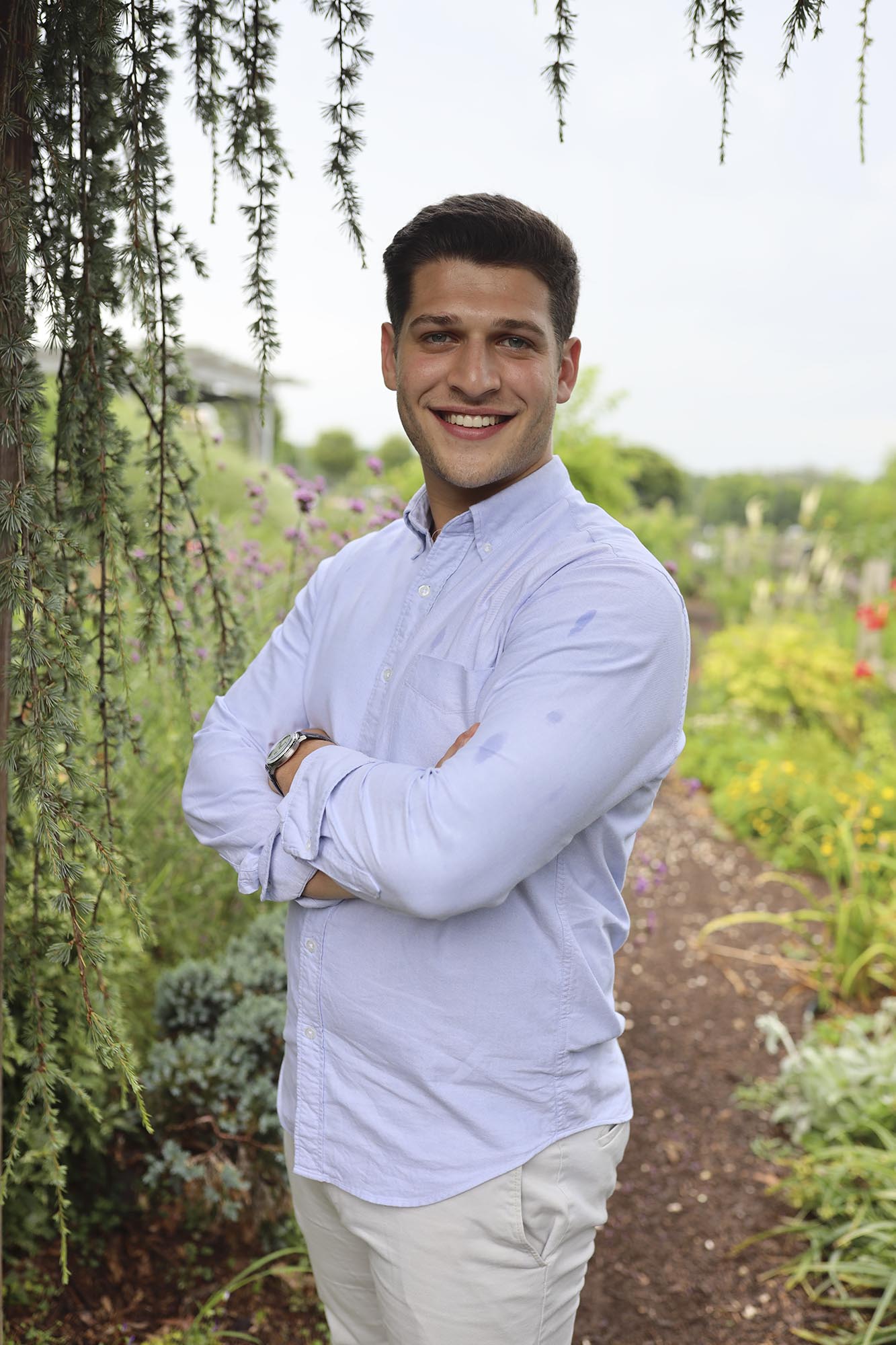
Alejandro Waquin, a fourth-year in the College of Arts & Sciences, first became interested in “impact investing” through a club called Profit With Purpose. (Contributed photo)
AW: From working with all the incredible entrepreneurs and MBA students, I learned that asking the right questions is a very important skill. The ability to distinguish between what one can find with simple research and what one should specifically ask is extremely important.
Another crucial skill that I adopted was how to work on a team while also being flexible. I have always played sports growing up, so I know how to work with others, but CAVenture challenged my ability in a new way. At CAVenture, one needs to be able to complete their part well, be in constant communication with other team members and be able to lend a hand when needed.
SP: It was really incredible to work alongside the MBA students. I think I learned a great deal by listening to them ask questions during diligence calls and seeing how they wanted to design the diligence process and how they navigated the different sections of the diligence report.
RE: Understanding how to screen early stage companies, learning the ins and outs of the due-diligence process, leading a team through the process, and balancing relationships with founders and other stakeholders. Also, knowing when and how to ask the right questions.
Q. Who specifically helped you learn these things? Any mentors?
AGM: Rich Diemer and Paul Nolde were both so supportive during and after my time at CAVenture, and I consider them both mentors today as I continue down this path.
AW: Rich Diemer was a great mentor. He always reached out to me for opportunities and gave me great advice about my career. He is very thoughtful and genuinely interested in helping students reach their full potential. If he thought that an experience could help me grow, he was never shy in letting me know how I could get involved.
For instance, he introduced me to a health care valuation course. He also set me up on a call with a managing director at Morgan Stanley so I could learn more about the business and employment opportunities.
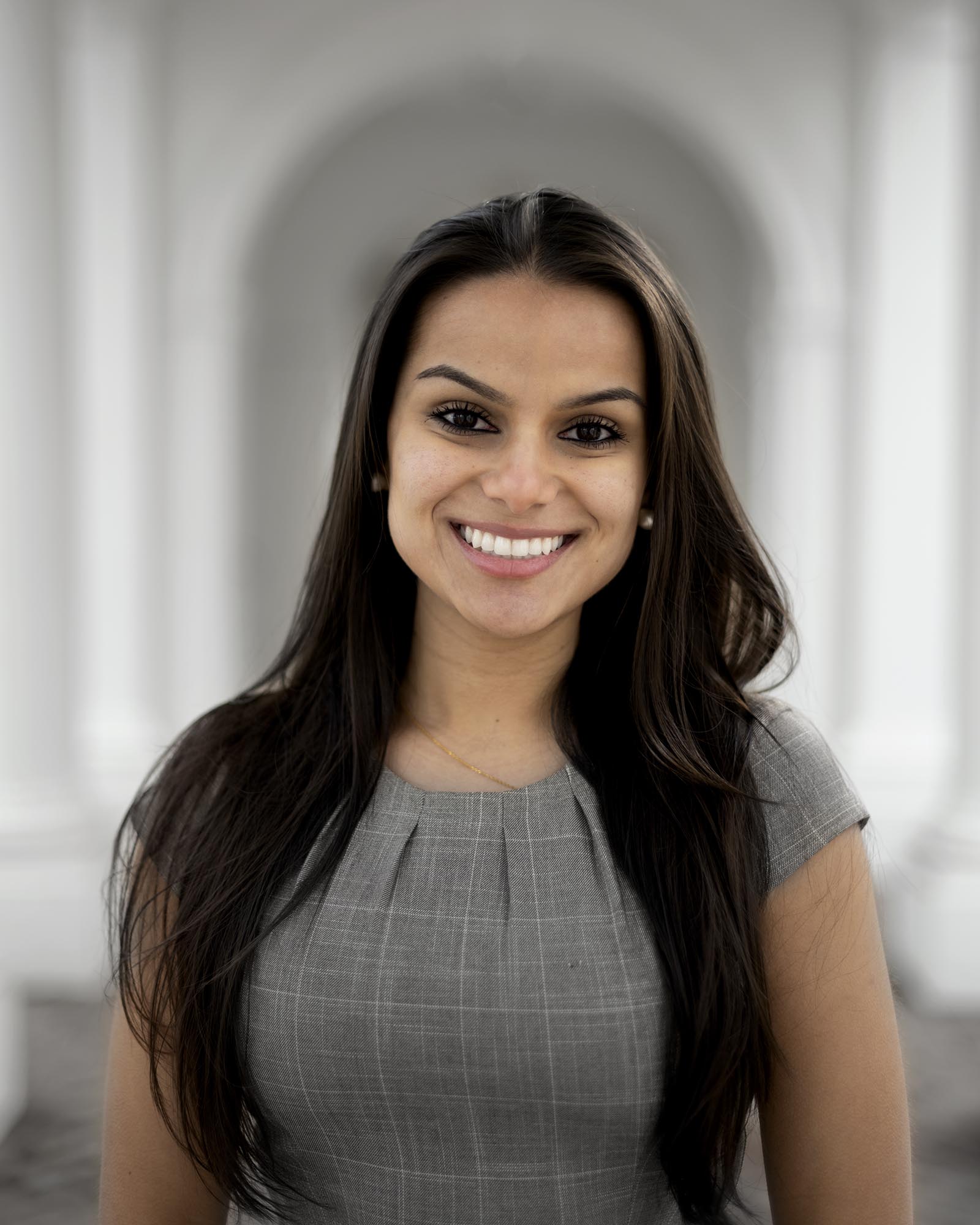
Sambriddi Pandey, a fourth-year student in the McIntire School of Commerce, says she’s learned a lot by working alongside Darden students. (Contributed photo)
Aaron Fernstrom was another great mentor who taught me a lot about financing, angel investing and how to perform due diligence.
SP: I got to know Adriana Gadala-Maria through this process. It was an incredible experience to learn from watching Adri navigate and help lead the diligence process. By getting to know her from the program, I learned more about her past experience at Reddit and how that has contributed to her passion for Venture. I admire Adri’s dedication to learning and her different involvement and leadership roles in venture-related organizations outside CAV. I am incredibly excited to see all that Adri accomplishes after graduating from Darden and know that she will be an incredible VC one day.
Q. What was the most surprising and/or fun part of the experience?
AGM: I think the most fun part about this experience was learning about an industry I previously knew little about. Since DataClassroom is an ed-tech platform, our team spent weeks researching the ins and outs of the educational system and the role technology plays in public and private schools. The opportunity to do a deep dive into this industry and walk away from this experience with a better understanding of it was a lot of fun.
AW: The most fun part of the experience was being able to talk and interact with all the entrepreneurs. These founders are extremely smart and passionate about what they do. It was interesting to observe how they think and understand how their quick decisions affected the companies they managed. I was able to learn a lot about startups and how challenging this space can really be.
Working alongside the MBA students was also very fun because they have a lot more experience than I do, and it was interesting to see how they applied their learnings from Darden to the due-diligence process. For instance, I worked with an MBA student who did investment banking before going to business school and he was able to teach me a lot about how to analyze financial statements.
SP: As an undergrad, it was incredible to get to know Darden students and work alongside them. The Darden team that worked on our diligence report was so brilliant and helpful. Although the virtual environment didn’t allow for much opportunity to meet in person, I felt very comfortable reaching out and talking to anyone with questions beyond those just pertaining to the report.
RE: The whole experience was new to me and exciting because I was learning so much throughout the process. One of the key takeaways for me after last year was the importance of building a strong relationship with the founder/founding team and cultivating trust so that they are willing to be more forthcoming and help you along in the diligence process.
Q. Do you know what you want to do for a career after you graduate?
AGM: After graduation, the goal is to continue working in venture capital. Since my time at CAVenture, I’ve had the opportunity to work at other venture capital firms like Dorm Room Fund, Anorak Ventures, Glynn Capital and Bessemer Venture Partners, and I hope to continue this work post-Darden.
AW: After graduation, I am going to be going to New York and working for an investment bank.
SP: I will be working at Jefferies in New York City as an investment banking analyst.
RE: Venture capital or continue in the startup space a while longer. My background is in consumer and retail/fashion technology. I am also working on a new startup of my own.
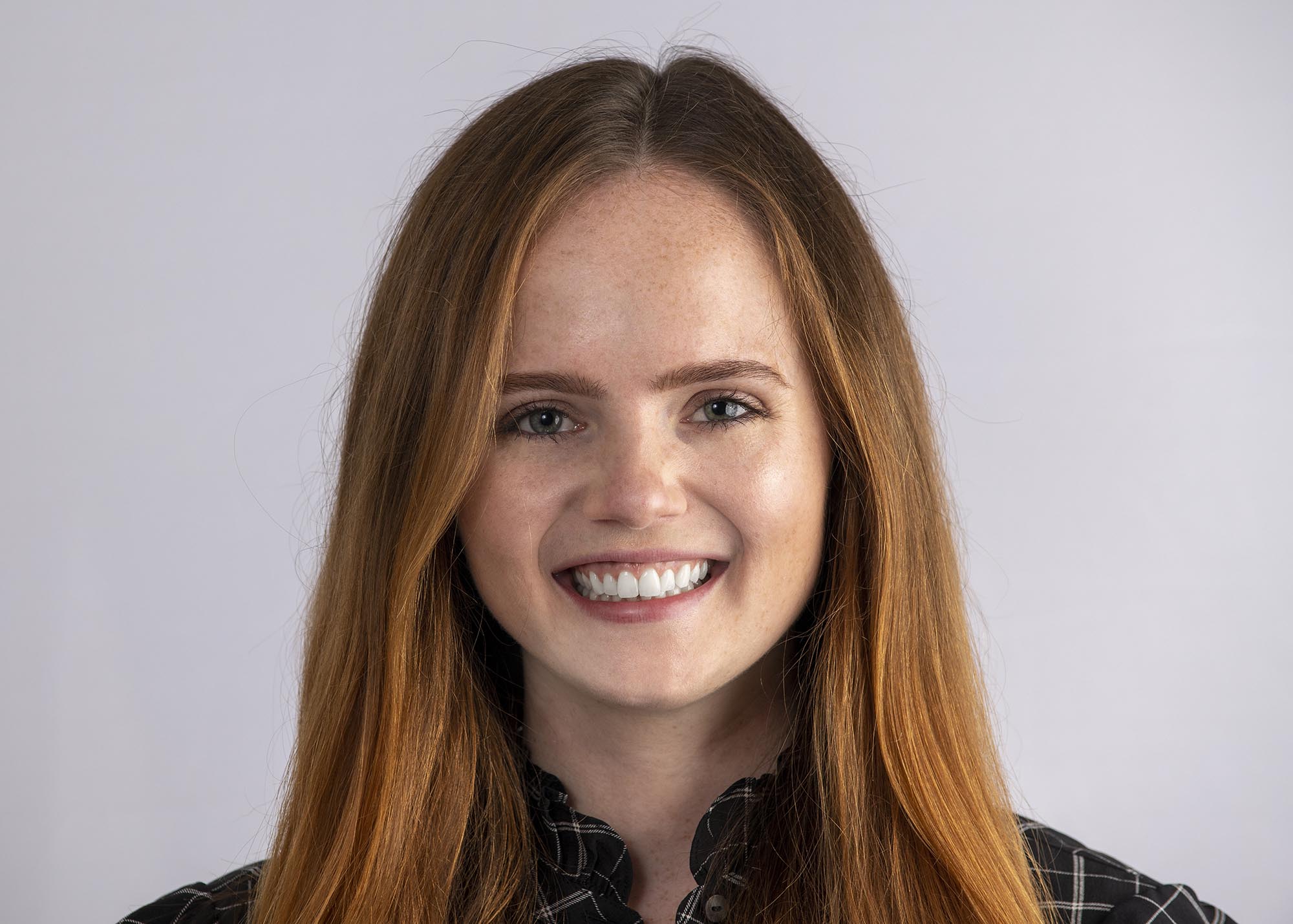
Knowing when and how to ask the right questions is one of the biggest skills that Darden student Rachel Edwards says she has learned through CAVenture. (Contributed photo)
Q. Is there anything else about your experience you’d like to add?
AGM: If you’re a UVA undergraduate or graduate student curious about the venture capital space, I would highly recommend getting involved with CAVenture!
AW: Being in CAVenture was an amazing experience from which I took a lot of valuable skills and lessons. I loved working with everyone at CAV Angels, and really appreciated how willing everyone was to explain or introduce you to something that you were curious about. I would highly recommend any student interested in business or finance to get involved.
SP: I owe so much credit to the Darden students for their contributions to the diligence process and their role in leading the report. They were such an incredible group of people to work with and did a great job at also tapping into us undergrads for opportunities to help.
RE: I had an incredible experience with CAVenture and highly recommend it to anyone considering a VC or startup career path. It is a great opportunity to learn and network!
On Thursday, CAV Angels, in conjunction with the UVA Alumni Association, will host a webinar featuring three of its portfolio companies, ARtGlass, TearSolutions and DiveTech.
Media Contact
Article Information
February 15, 2022
/content/doing-their-diligence-students-help-angel-investors-decide-start-companies

